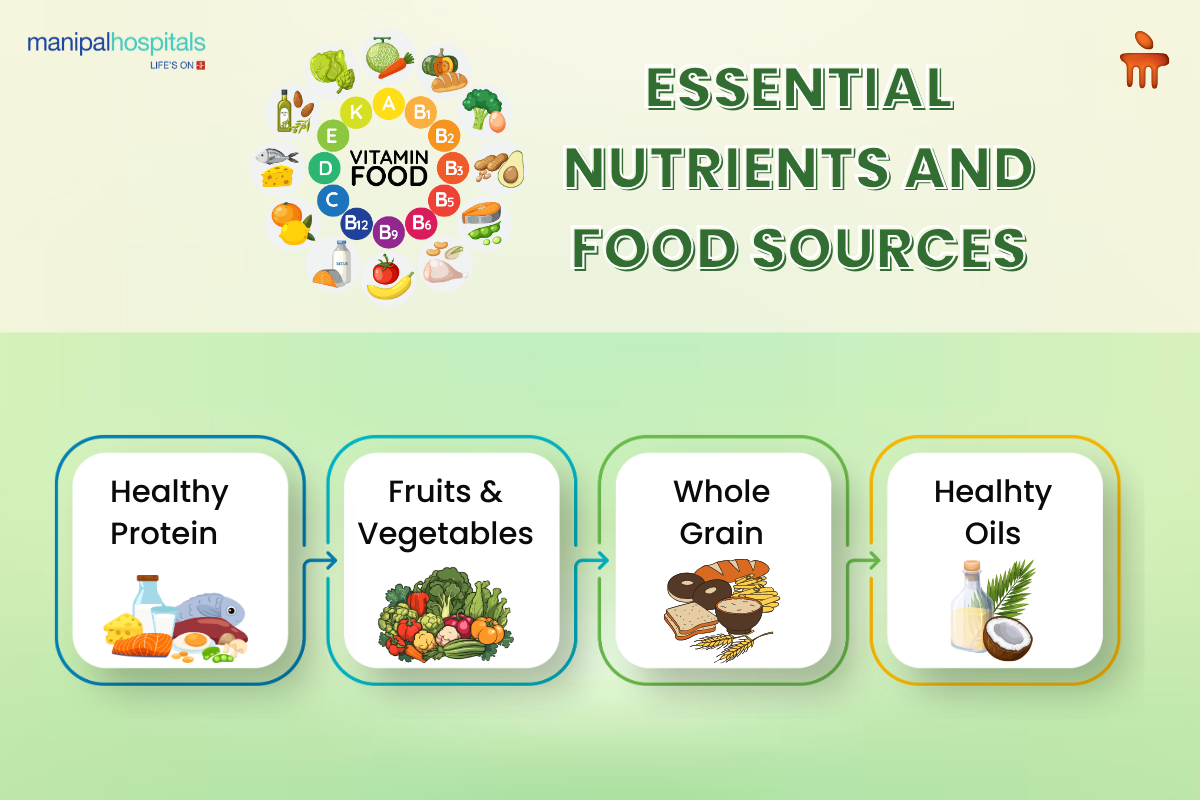
A healthy diet that contains a proper balance between nutrients delivers essential components needed for your body to work effectively. India faces a significant health emergency because of inadequate nutrition patterns. Around 14.4 million Indian children suffer from being overweight because of their inactive lives and lack of a healthy diet pattern. The malnutrition prevalence among children under six reaches approximately 36% because of persistent undernutrition. These data point to the essential need for nutritional equilibrium because it fights obesity and undernutrition. Here, an expert nutritionist and dietitian in Sarjapur Road Bangalore, discusses how a balanced diet remains crucial for disease prevention, growth and development, and overall health.
Synopsis
What is a Balanced Diet?
To maintain good health, your body requires a balanced diet or a diet with all essential nutrients. A healthy diet must contain carbohydrates, proteins, fats, vitamins, minerals, fibre, and water. A nutritionally balanced diet enables proper body growth while improving the immune response and preventing lifestyle disorders. Daily selection of healthy foods leads to long-lasting fitness while stopping nutritional deficits from developing.
Essential Components of a Balanced Diet
A balanced diet consists of essential nutrients that keep your body healthy and strong. Each nutrient is vital in maintaining energy, growth, and overall well-being.

Here are the key components of a balanced diet:
-
Carbohydrates: Provide energy and should make up 50-60% of your diet
-
Proteins: Help build muscles, skin, and hair, contributing 10-12% of your diet
-
Fats: Support body functions and absorb fat-soluble vitamins
-
Vitamins: Essential for immunity, growth, and overall health
-
Minerals: Help release energy and support organ functions
-
Fibre: Aids digestion, controls cholesterol, and regulates blood sugar levels
-
Water: Keeps you hydrated and supports body functions
Healthy Food Sources for Each Nutrient
Eating the right foods ensures your body gets essential nutrients for growth, energy, and disease prevention. Each nutrient comes from specific food sources that support overall health and well-being
Below are the best food sources for each nutrient:
-
Carbohydrates: Whole grains (oats, quinoa, millets), legumes, vegetables, and whole wheat products
-
Proteins: Legumes, beans, poultry, seafood, eggs, lean meat, nuts, seeds, and Greek yoghurt
-
Healthy Fats: Avocados, nuts, seeds, extra virgin olive oil, and fatty fish (salmon, sardines, mackerel)
-
Vitamins: Fruits, vegetables, poultry, seeds, and nuts
-
Minerals: Fish, meat, beans, cereals, nuts, and seeds
-
Fibre: Oats, dahlia, quinoa, brown rice, beans, whole grains, nuts, and seeds
-
Water: Drink at least eight glasses daily for proper hydration and body function
Foods to Avoid for a Healthy Life
Eating unhealthy foods can lead to obesity, heart disease, diabetes, and other health issues. Avoiding processed and harmful foods helps maintain energy levels, boosts immunity, and prevents lifestyle diseases.
Below are the foods you should avoid for a healthy life:
-
Red Meat: Increases the risk of heart disease and high cholesterol
-
Refined Grains: Maida, white bread, sweeteners, noodles, and pasta can spike blood sugar levels
-
Trans Fats: Found in butter, cheese, and fried foods, they raise bad cholesterol.
-
Added Sugar: Excess sugar in sweets, soft drinks, and desserts increases the risk of diabetes
-
Pastries and Processed Foods: High in unhealthy fats, preservatives, and artificial additives, harming overall health
Conclusion
If you experience unexplained weight loss, persistent fatigue, digestive issues, or frequent infections, consult an experienced nutritionist in Bangalore. If untreated, nutritional deficiencies can lead to serious health problems. A dietitian can help create a personalised meal plan based on your needs. Seek medical advice for diabetes, heart disease, or dietary restrictions. Prioritising balanced nutrition ensures long-term health and prevents future complications.
FAQ's
A balanced diet provides essential nutrients, such as omega-3 fatty acids, B vitamins, and antioxidants, which support brain function, reduce stress, and improve mood.
Food rich in magnesium, tryptophan, and melatonin, such as nuts, dairy, and whole grains, promotes better sleep quality.
No, you can eat smaller, balanced meals throughout the day to maintain energy levels and prevent overeating.
Nutrient-rich foods like fruits, vegetables, and healthy fats help maintain hydration, prevent acne, and slow ageing.
A diet rich in proteins, healthy fats, and whole foods helps regulate hormones and improve metabolism, mood, and overall health.





















 4 Min Read
4 Min Read

















